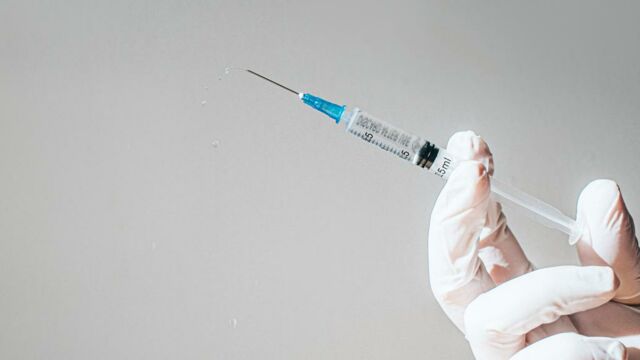Experts reveal there is no link between alcohol and COVID vaccine efficacy

Despite precautionary warnings back in January, the MHRA has revealed no link between alcohol and coronavirus vaccine efficacy.
The UK Medicines and Healthcare products Regulatory Agency (MHRA) has recently announced that despite warnings and concerns, alcohol does not change the effectiveness of the COVID vaccines.
Discover our latest podcast
The MHRA has also revealed no alcohol warnings on the NHS patient information leaflets or from the vaccine manufacturer.
More under this adMore under this adDrinkaware warns the public to avoid alcohol when getting the vaccine.
In January, the alcohol education charity Drinkaware took to social media to warn the public against consuming alcohol both two days before and two weeks after receiving their first coronavirus vaccine. The waring has been shared around the web again recently, prompting questions about the relationship between alcohol and vaccines.
The charity initially suggested thatalcohol may affect the body’s immune response to COVID vaccines used in the UK. However, no information so far has proven this. The MHRA revealed:
More under this adMore under this adThere is currently no evidence that drinking alcohol interferes with the efficacy of the Covid vaccines. We would advise anyone concerned about this to talk to their healthcare professional.
Vaccinated residents should still be cautious around alcohol
While the new information to be music to the ears of vaccine receivers, they should still be cautious around alcohol when getting vaccinated.
More under this adMore under this adSome studies have suggested that drinking small amounts of alcohol can help to reduce inflammation in the body and boost immunity in the long term. On the other hand, additional research shows that heavy binge drinking can have the opposite effect and suppresses the immune system.
Dr Eleanor Gaunt, a research fellow at the Roslin Institute of Edinburgh University, revealed that there has yet to be any study investigating the link between alcohol and the Pfizer or Oxford vaccines.
More under this adMore under this adIn January, Dr Fiona Sim, chief medical adviser at Drinkaware, revealed: ‘We are very keen to stress how important it is for you to get vaccinated.’
We do know that, since the onset of the pandemic last year, between one fifth and one third of people have been drinking more than they do usually.More under this adMore under this ad
She continued:
So, as far as alcohol is concerned, we advise that you consider not drinking for two days before, and up to two weeks after you've been vaccinated, to try to ensure your immune system is at its best to respond to the vaccine and protect you.
Dr Sim then went on to urge even heavy drinking residents to get vaccinated against COVID as having a compromised immune system could result in serious illness:
More under this adMore under this adBut it's really important to know that, even if you do drink, you'll still benefit from having the jab, so please don't turn it down. If you are a regular heavy drinker, the risks to you of becoming seriously ill if you do contract Covid are particularly high, so please keep your appointment for vaccination if you are offered one.